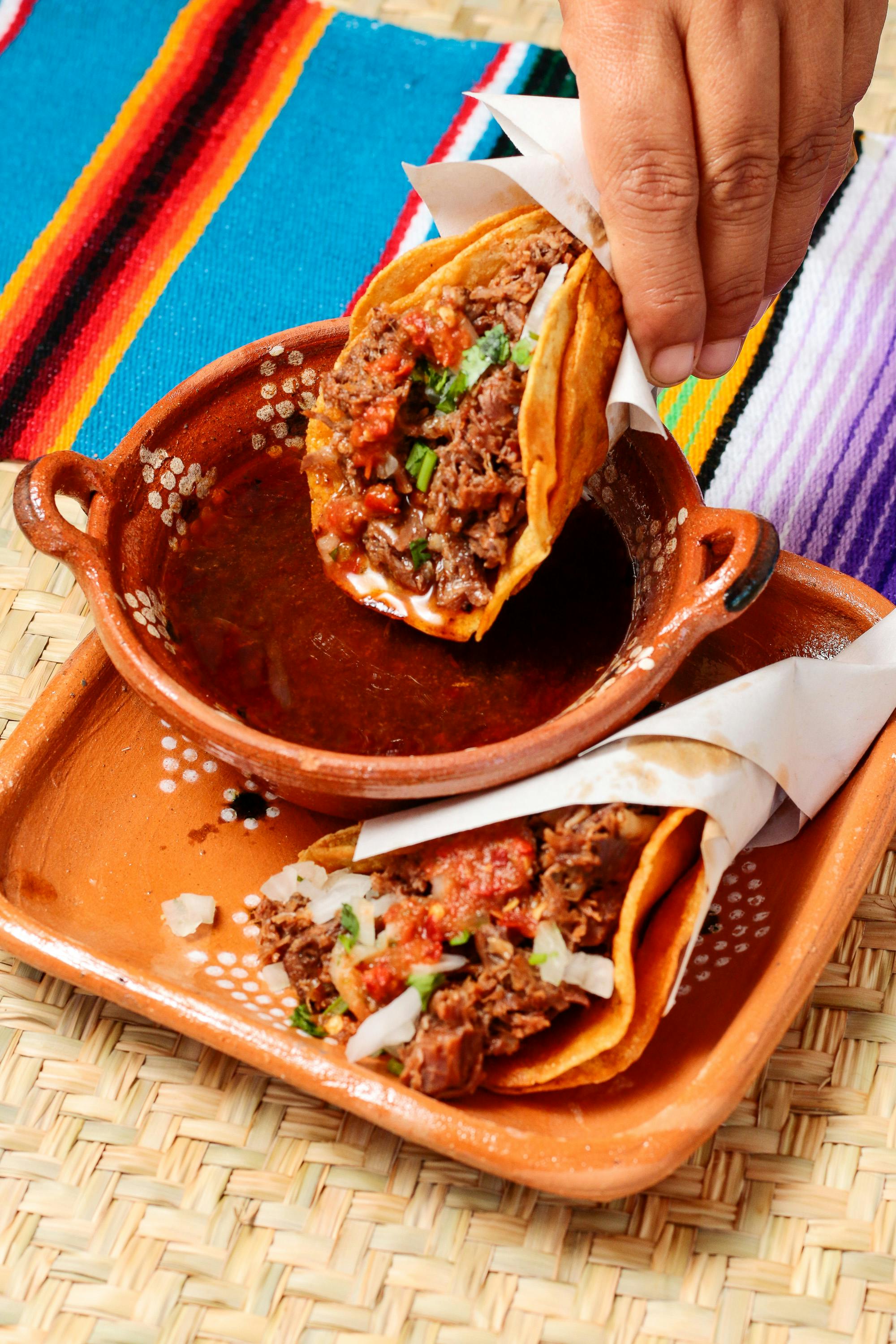Apply Now
Effective Ways to Improve Your No Sugar Diet in 2025
The no sugar diet has gained significant traction in recent years, offering a path toward improved health and wellness. As we navigate through 2025, the principles behind this dietary approach are more relevant than ever. This article aims to provide you with effective strategies to enhance your no sugar diet, empowering you to make informed choices that promote overall health.
By eliminating sugar from your meals, you not only reduce unnecessary calories but also lower the risk of various health issues linked to sugar consumption. We'll explore a range of nutritious alternatives, meal prep strategies, and healthy eating tips which emphasize whole food options, low-sugar snacks, and high fiber foods. Additionally, you will discover how to effectively incorporate sugar substitutes and dairy alternatives into your diet, making it easier than ever to enjoy delicious meals and snacks without the added sugars.
In this comprehensive guide, you will learn about meal ideas, best practices for grocery shopping, and how to maintain a balanced approach to your nutrition while tracking your sugar intake. We will also provide practical insights into creating meals that support weight management and enhance your overall eating experience.
The Importance of a No Sugar Diet
Switching to a no sugar diet can lead to numerous benefits, including weight loss and improved energy levels. By cutting out sugary foods, you may experience a reduced risk of chronic illnesses such as diabetes and heart disease. Understanding sugar's impact on health helps you make better food choices.
Moreover, a no sugar diet encourages you to explore other food groups, fostering a more diverse and nutrient-rich meal plan. Emphasizing whole foods, such as vegetables, lean proteins, and healthy fats, becomes essential for providing necessary nutrients while avoiding added sugars.
Key Components of a No Sugar Diet
To successfully navigate a no sugar diet, consider the core components that will guide your food choices. A balanced approach includes incorporating healthy fats, low glycemic index foods, and sugar-free alternatives. You can make satisfying meals without relying on added sugars.
Moreover, being mindful of portion control and nutrition labels while shopping can aid in avoiding hidden sugars in processed foods. Prioritizing fresh fruits, low-sugar vegetables, and nutrient-dense snacks will not only satisfy cravings but also promote health.
Meal Prep Strategies for Success
Effective meal prep can simplify implementing a no sugar diet and enhance your dietary adherence. Preparing meals in advance allows you to have healthy options readily available, reducing the temptation to reach for sugary snacks.
Explore budget-friendly meal prep ideas that focus on high-protein, clean-eating recipes. Planning your meals and using fresh, whole ingredients are essential for a successful no sugar diet. For example, prepare home-cooked dishes using flavorful herbs to enhance your meals without adding sugar.
Incorporating Sugar Substitute Options
Transitioning to a no sugar diet does not mean sacrificing sweetness in your meals. Understanding sugar substitute options can offer a solution to satisfy your sweet tooth while adhering to dietary guidelines.
Natural Sweeteners: A Suitable Alternative
Natural sweeteners provide an excellent alternative to refined sugars. Options such as honey, agave nectar, and maple syrup can serve as substitutes. However, moderation is essential, as these alternatives can still affect blood sugar levels.
Another noteworthy option is stevia, a plant-based sweetener with zero calories, making it a preferred choice for many individuals pursuing a sugar-free lifestyle. Integrating these alternatives into your diet allows you to enjoy desserts and beverages without the negative health impacts associated with sugar consumption.
Exploring Sugar-Free Snacks
Finding delicious sugar-free snacks is vital to sustaining your no sugar diet. Look for high-fiber foods, such as fresh fruits and vegetables, nuts, and yogurt without added sugars. These snacks not only curb hunger but also keep you satisfied throughout the day.
Dairy alternatives like unsweetened almond milk or coconut yogurt can also provide a base for creative sugar-free snack options. Incorporate nut butters or sugar-free protein bars to achieve nutrient-dense snacks that fuel your activities without excess sugars.
Healthy Breakfast Ideas Without Sugar
Starting your day with a nutritious breakfast sets the tone for your dietary choices. Consider options such as oatmeal made with low-sugar fruits, protein-rich smoothies made with green vegetables, or chia seed pudding.
These breakfast ideas allow you to fuel your body with essential nutrients while avoiding sugar. By incorporating protein-rich options into your breakfast, you can also maintain energy levels throughout the day, making it easier to avoid sugary temptations.
Essential Healthy Meals for a No Sugar Diet
Crafting healthy meals that align with a no-sugar approach can often feel daunting. However, with a few practical tips and recipes, it becomes simpler to create satisfying, low-sugar meals that nourish your body.
Creating Flavorful and Nutritious Salads
Salads serve as a fantastic foundation for sugar-free meals. By incorporating various vegetables, healthy fats, and proteins, you can prepare meals that are rich in vitamins and minerals.
Opt for salads without dressing or use homemade dressings made from olive oil, vinegar, and herbs for flavor. Including low-sugar fruits, such as berries, can enhance your salads and provide a natural sweetness without relying on added sugars.
Dinner Ideas with Healthy Fats and Proteins
For dinner, focus on lean proteins and healthy fats to create satisfying dishes that adhere to your no sugar diet. Grilled chicken or fish can be paired with low sugar vegetables like broccoli or zucchini, providing ample nutrients without additives.
Explore cooking methods such as grilling, steaming, or roasting to maximize flavor while keeping meals healthy. Adding spices and herbs can help enhance dishes without adding additional sugar.
Incorporating Low Sugar Snacks Throughout the Day
To successfully maintain your no sugar diet, consider implementing low sugar snacks throughout the day. Snack ideas such as raw vegetables with hummus or nut butter, high-fiber fruits, and whole food options can curb hunger without resorting to unhealthy, sugary choices.
Ensuring you have sugar-free protein bars, herbal teas, and even low-calorie foods on hand can make your food journey more enjoyable, sustaining your energy and motivation.
Mindful Eating and Understanding Nutrition Labels
An effective approach to maintaining a no sugar diet involves mindful eating and understanding nutrition labels. This knowledge empowers you to make informed choices when shopping for groceries or dining out.
Food Tracking and Portion Control Techniques
Food tracking can help you maintain awareness of your sugar intake and overall dietary habits. Consider using apps or journals to track what you eat, which encourages mindful consumption. Understanding portion control can prevent accidental overconsumption of even healthy foods.
Establishing a routine where you check nutrition labels helps you identify added sugars and become familiar with ingredient lists, enabling you to avoid hidden sources of sugar in packaged foods.
Managing Sugar Cravings and Hunger
Sugar cravings commonly arise during dietary changes. To combat this, focus on high fiber foods and proteins to keep you satisfied. Implement strategies such as drinking plenty of water and consuming nutrient-rich snacks to avoid cravings.
Mindful consumption practices prepare you to better manage sugar cravings, helping you develop a self-awareness that supports your journey toward a sugar-free lifestyle.
Building Healthy Habits Around Your Diet
Sustaining a no sugar diet is achievable by establishing healthy habits surrounding your eating patterns. Experiment with new recipes, create family meal plans, and involve loved ones in your journey.
Being accountable, tracking progress, and celebrating milestones can encourage your commitment to a sugar-free lifestyle. Surrounding yourself with supportive communities and health influencers can further bolster your motivation.
Frequently Asked Questions About a No Sugar Diet
What are the best sugar substitutes for cooking?
Several effective sugar substitutes for cooking include stevia, erythritol, and monk fruit sweetener. These alternatives provide sweetness without the caloric impact of traditional sugars.
How do I manage sugar cravings during my diet?
To manage cravings, consume high-fiber and protein-rich snacks, stay hydrated, and practice mindful eating techniques to boost satiety and prevent binges.
Can I still enjoy desserts on a no sugar diet?
Yes! There are various sugar-free dessert recipes available, including sugar-free ice cream or sugarless chocolate options, allowing you to indulge while adhering to dietary guidelines.
What are the benefits of a no sugar diet?
Benefits of a no sugar diet include weight loss, improved energy levels, reduced risk of chronic diseases, and better overall nutritional intake by focusing on whole foods.
Are there budget-friendly options for a no sugar diet?
Absolutely! Meal prep ideas, purchasing in bulk, and focusing on seasonal produce and whole foods can all contribute to maintaining a budget-friendly approach while eliminating sugar from your diet.




